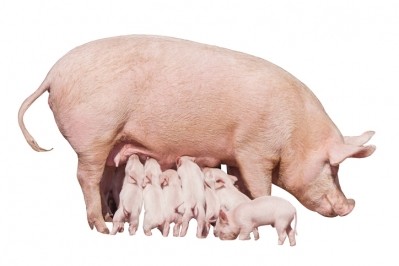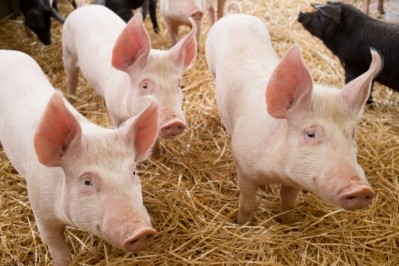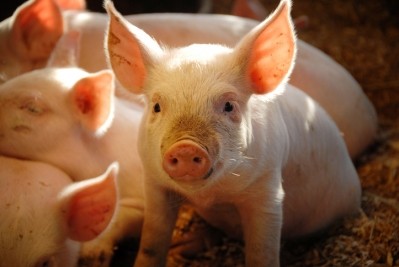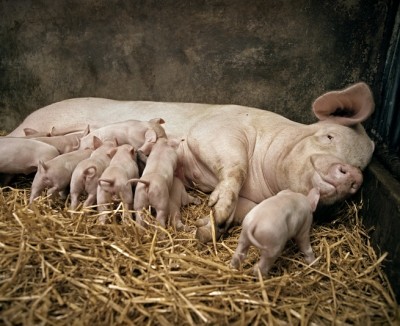Zinc oxide ban: Chr. Hansen focuses on intestinal health
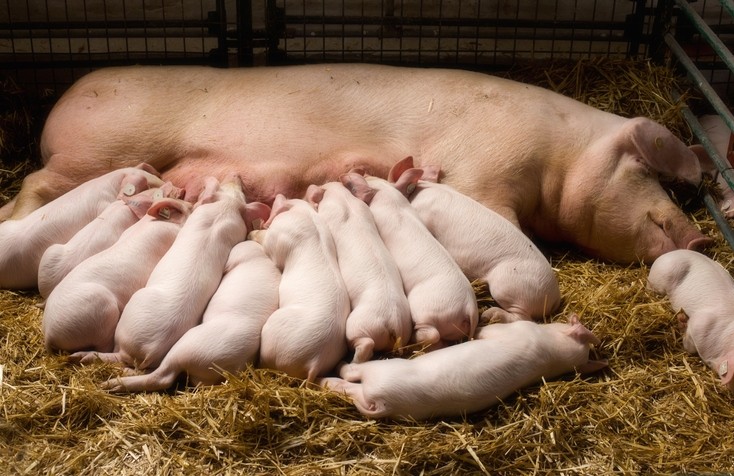
The EU ban on the use of zinc oxide in weaned piglets came into force in June, bringing piglet intestinal health into the spotlight. In this context, Chr. Hansen has released the results of an unpublished study in which administration of a dual strain Bacillus-based probiotic to sows and piglets improved the fecal microbiota composition, risk of mortality and performance of suckling piglets.
The Danish bioscience company is in the process of launching SolPreme - a new Bacillus-based probiotic - in Europe. The product targets sows and piglets with two strains that have been chosen for their ability to inhibit the growth of harmful bacteria such as E. coli and Clostridia.
“We wanted to investigate how this combination of selected strains administered to the sows could influence the performance and health of their offspring,” said Lea Hübertz Birch Hansen, global technical product manager, swine, at Chr. Hansen, explaining the rationale for the study.
She continued: “Piglets are sensitive to devastating disease such as Clostridia which can impair their performance and welfare as soon as 12 hours after birth. Therefore it is key to beneficially intervene early in the life of the piglet.”
Chr. Hansen’s strategies for piglet health are grounded in the belief that keeping the sow healthy ensures the performance of her offspring. Hübertz Birch Hansen said that in this study, she and her colleagues wanted to test this connection between sow and piglet, by using the sow as a vehicle to transfer healthy and beneficial bacteria to her litter.
“So it’s all around this idea: test this theory and confirm that sows and piglets are all connected,” she said.
Study design
88 sows were split into two groups: a control group and a probiotic group. Sows in the probiotic group were administered SolPreme from one week prior to expected farrowing until weaning four-weeks post-partum.
Probiotics were also administered to piglets via creep feed from day 10. Several performance parameters were measured for the litters (growth performance, pre-weaning mortality and uniformity), feces from sows and piglets were analyzed for bacterial cell counts of C. perfringens and 16S sequencing was carried out to obtain microbiome data.
Probiotic administration significantly reduced pre-weaning mortality from 13.7% to 8%, with the majority of losses occurring in the first seven days (12.5% in the control group and 7.6% in the probiotic group).
Litter weaning weight was significantly improved in the probiotic group - these litters weighed 6.2kg more (62.6kg versus 56.4kg), plus Average Daily Gain of piglets tended to be improved in the probiotic group, said Hübertz Birch Hansen.
Uniformity at weaning also tended to be improved in the probotic group, at 81.4% CVBW (Coefficient of variation for piglet Body Weights within the litter) versus 78.8%.
Uniformity: a forgotten metric
Explaining the significance of this last result, Hübertz Birch Hansen said: “Uniformity is a forgotten metric in the swine industry. For instance, research shows that a 1% lack of uniformity at slaughterhouse is worth €1 per pig. Monetary wise, lack of uniformity leads to intense labor costs for sorting as well as penalties at slaughterhouse.”
Another important finding was that probiotic provision improved the litter feces score during week one.
“Bacterial cell counts confirmed our hypothesis” said Hübertz Birch Hansen. “The relative proportion of C.perfringens was reduced in feces from sows administered the probiotics. There was less shedding and transfer of C.perfringens to the litter, which is obviously a good thing for the producer.”
According to the microbiome data, Lactobacillus was found to be more abundant in feces of piglets from SolPreme-administered sows, and the beneficial microorganism Ruminococcus gauvreauii was significantly more abundant at weaning in feces of probiotic piglets.
“That gives the piglets an advantage post-weaning when it comes to digesting a corn-based diet and overcoming the stressors related to the weaning process,” she said.
The study was presented as a poster at the 15th International Symposium on Digestive Physiology of Pigs in May.
Future research directions
Following this study, Chr. Hansen said it would continue to look into the effect of SolPreme on the health and performance of sows and piglets.
“Research areas of interest are the impact on the offspring of administering the probiotic to sows, in other words, the importance of early ingestion of the product by the newborn pig and how it influences the gut microbiome and development of the immune system,” said Hübertz Birch Hansen.
“In addition, we will investigate the effect of the probiotic on the sow’s reproductive performance as we believe it will confirm our understanding that it is all connected. By protecting the sow as a valuable asset, the likelihood of weaning robust and healthy piglets is much higher. It is critical for the profitability of the swine industry,” she said.
